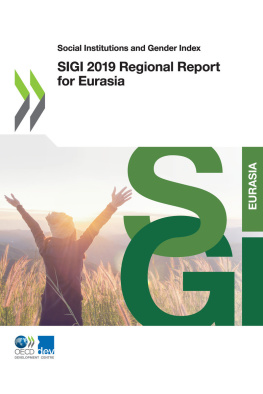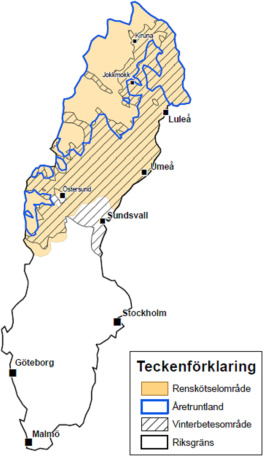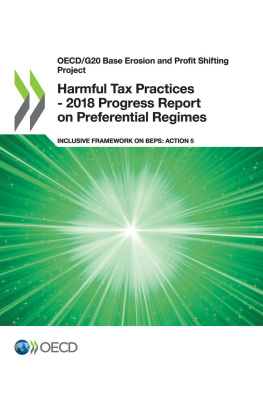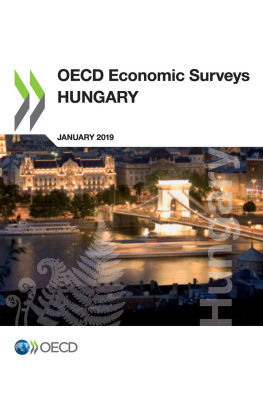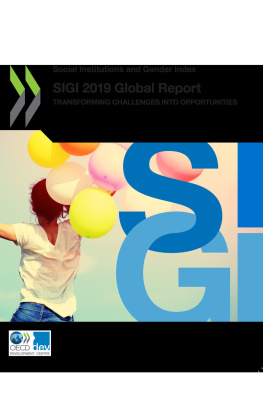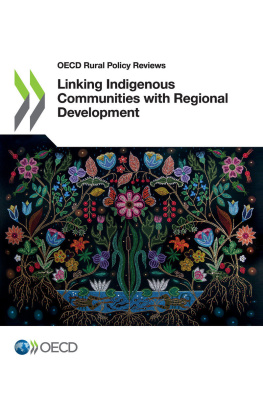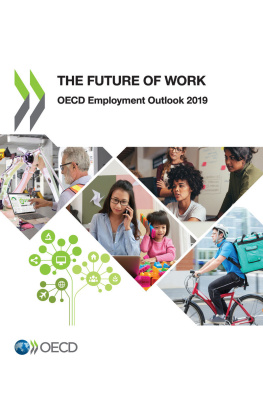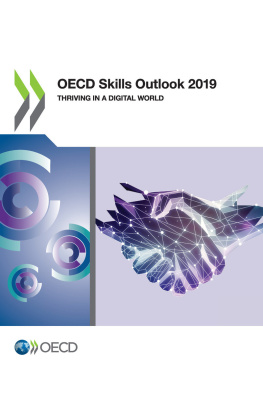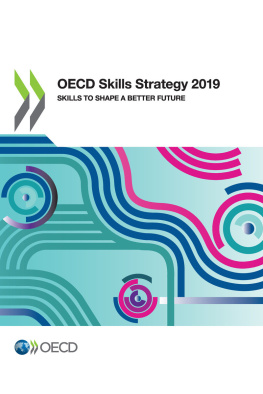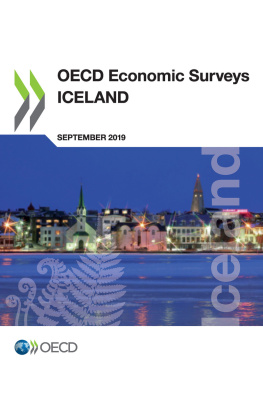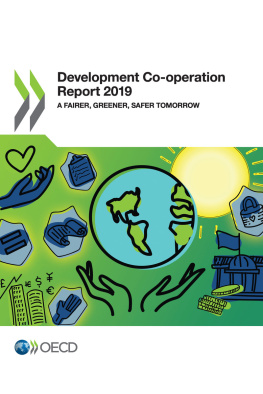OECD - SIGI 2019 Regional Report for Eurasia
Here you can read online OECD - SIGI 2019 Regional Report for Eurasia full text of the book (entire story) in english for free. Download pdf and epub, get meaning, cover and reviews about this ebook. year: 2019, publisher: OECD Publishing, genre: Home and family. Description of the work, (preface) as well as reviews are available. Best literature library LitArk.com created for fans of good reading and offers a wide selection of genres:
Romance novel
Science fiction
Adventure
Detective
Science
History
Home and family
Prose
Art
Politics
Computer
Non-fiction
Religion
Business
Children
Humor
Choose a favorite category and find really read worthwhile books. Enjoy immersion in the world of imagination, feel the emotions of the characters or learn something new for yourself, make an fascinating discovery.
- Book:SIGI 2019 Regional Report for Eurasia
- Author:
- Publisher:OECD Publishing
- Genre:
- Year:2019
- Rating:5 / 5
- Favourites:Add to favourites
- Your mark:
- 100
- 1
- 2
- 3
- 4
- 5
SIGI 2019 Regional Report for Eurasia: summary, description and annotation
We offer to read an annotation, description, summary or preface (depends on what the author of the book "SIGI 2019 Regional Report for Eurasia" wrote himself). If you haven't found the necessary information about the book — write in the comments, we will try to find it.
OECD: author's other books
Who wrote SIGI 2019 Regional Report for Eurasia? Find out the surname, the name of the author of the book and a list of all author's works by series.
SIGI 2019 Regional Report for Eurasia — read online for free the complete book (whole text) full work
Below is the text of the book, divided by pages. System saving the place of the last page read, allows you to conveniently read the book "SIGI 2019 Regional Report for Eurasia" online for free, without having to search again every time where you left off. Put a bookmark, and you can go to the page where you finished reading at any time.
Font size:
Interval:
Bookmark:
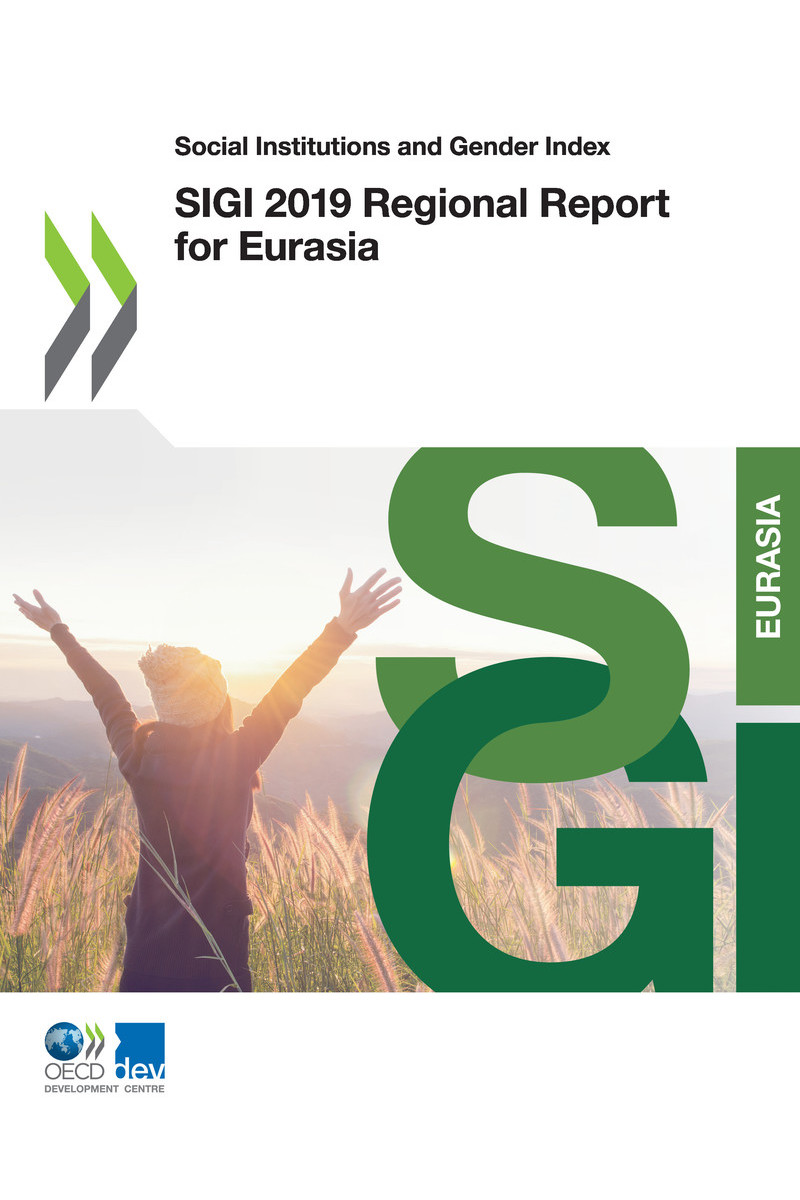
OECD (2019), SIGI 2019 Regional Report for Eurasia , Social Institutions and Gender Index, OECD Publishing, Paris, https://doi.org/10.1787/f6dfa21d-en .
Providing women with the same rights and opportunities as men in the private and public spheres is not just a matter of human rights: it is an economic opportunity that no Eurasian country can afford to miss. As this report points out, the 2017 cost to the regional economy of gender-based discrimination in laws, social norms and practices is estimated at USD 39 billion (7.5% of the regions income). The social impact of gender inequality affects the quality of life of millions of women in every sphere, and also has consequences for their families and communities.
Eurasian countries are committed to promoting gender equality and the empowerment of women, notably through their ratification of the Convention on Elimination of all forms of Discrimination Against Women (CEDAW) and the United Nations 2030 Agenda for Sustainable Development. Gender equality and womens empowerment are included as a mainstreamed target and stand-alone Sustainable Development Goal (SDG 5). Moreover, many countries have a long history of striving for gender equality through national strategies. This represents political recognition that the region cannot achieve sustainable and inclusive development while holding back half of the regional population. Still, much more is needed to achieve de facto equality between women and men.
For the last decade, the OECD Development Centres Social Institutions and Gender Index (SIGI) has supported Eurasian countries in better understanding the barriers to gender equality. By looking at the de jure and the de facto situations and their effects, which are often in opposition to each other the SIGI 2019 Regional Report shows that, despite impressive advances towards gender equality since the last edition of the SIGI in 2014, informal laws and practices embedded in society can thwart the statutory legal system. In other words, reforms can have limited traction unless the regions cultural, social and religious norms and structures are also taken into account.
This SIGI report calls for rethinking how gender equality is tackled, taking into account the political economy, while emphasising the need to reshape gender norms to achieve the SDGs. Indeed, empowering all women and girls requires redefining what it means to be a woman or a man in the Eurasia region. Making this shift will need better data collection, better analysis and better sharing of innovative approaches at the national and sub national levels. The OECD Development Centre will continue supporting this paradigm shift and optimising the SIGIs relevance to Eurasian policy makers as they advance towards achieving gender equality in all spheres of life.
Mario Pezzini
Director, OECD Development Centre
Special Advisor to the OECD Secretary-General on Development
Since its launch in 2009, the OECD Development Centres Social Institutions and Gender Index (SIGI) has been measuring and addressing gender-based discrimination by looking at the invisible part of the iceberg and providing a clearer vision of how social institutions shape womens lives. The SIGI looks at the gaps that legislation, social norms and practices create between women and men in terms of rights and opportunities. This innovative tool assesses social institutions holistically by looking at the de jure and the de facto situations. Where customary laws and social norms still largely determine communities and individuals behaviour, standard policies to promote gender equality are insufficient to precipitate social transformation. The SIGI 2019 has also been adapted to meet the needs of the development community as it works towards Agenda 2030. The SIGI is an official data source for SDG indicator 5.1.1. on legal frameworks and for almost all targets included in SDG 5, providing a comprehensive vision of national progress on gender equality.
The SIGI Regional Report for Eurasia specifically analyses regional and sub-regional legal and cultural specificities in order to understand the barriers to gender equality more clearly and to identify the drivers behind persistent forms of discrimination. It offers policy recommendations for Eurasia to reshape gender norms, promote womens roles in private and public spheres, and capitalise on opportunities.
The SIGI 2019 Regional Report for Eurasia was prepared by the OECD Development Centre under the supervision of, and with contributions from Bathylle Missika and Lorenzo Pavone. The report was co-ordinated by Galle Ferrant, in collaboration with the OECD Development Centre Gender team: Laura Copete, La Fuiret and Alejandra Meneses. Additional support came from Mary Bortin, Linda Smiroldo Herda, Habib Karamoko, Elizabeth Nash and Wanda Ollis.
The OECD Development Centre would like to thank the Austrian Development Agency (ADA), the Ministry for Foreign Affairs of Finland (MoFA), the Swedish International Development Cooperation Agency (Sida), and the Swiss Agency for Development and Cooperation (SDC) for their strong and long-standing support of the SIGI.
We would like to extend our thanks to the members of the SIGI Technical Group: Fareda Banda, Shailaja Chandra, Jacques Charmes, Andrea Den Boer, Geske Dijkstra, Caroline Harper, Stefan Klasen, Inaki Permanyer, and Amber Peterman. Particular thanks go to Professor Eduardo Zambrano, California Polytechnic State University, for revising the methodological framework in partnership with the OECD Development Centres Gender Team.
Font size:
Interval:
Bookmark:
Similar books «SIGI 2019 Regional Report for Eurasia»
Look at similar books to SIGI 2019 Regional Report for Eurasia. We have selected literature similar in name and meaning in the hope of providing readers with more options to find new, interesting, not yet read works.
Discussion, reviews of the book SIGI 2019 Regional Report for Eurasia and just readers' own opinions. Leave your comments, write what you think about the work, its meaning or the main characters. Specify what exactly you liked and what you didn't like, and why you think so.

